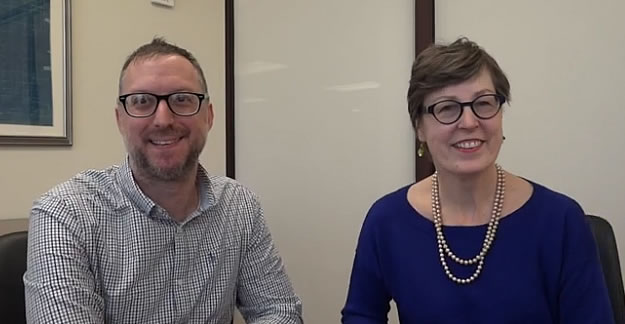This week, Su Robotti, Founder of MedShadow Foundation, and Jonathan Block, Content Manager, talk about the importance of ensuring that clinical trials for medicines are conducted with a diverse population. Did you know that African-Americans need a higher dose of warfarin than other groups do? That’s what makes this kind of testing so important.
MedShadowTVepisode15
Su Robotti: Hello and welcome to MedShadow TV. My name is Su Robotti and I’m the founder of MedShadow.
Jonathan Block: I’m Jonathan Block, and I’m the content manager for MedShadow.
SR: Very recently, the FDA came out with new guidelines on increasing the diversity in clinical trials for drugs. We find this to be very important, and we’re delighted that the FDA has done this.
There are three phases of clinical trials that a drug has to go through before it can be approved or disapproved by the FDA. The first phase is usually animal testing, and much, much, research and testing goes on before you can get through a phase one trial. Should it pass the phase one trial, then it goes onto human trials at levels two and three. The second trial level is simply test for safety. They give to healthy people and just make sure that there’re no unexpected adverse events, which generally means a significantly bad side of that, sometimes death.
But by the time it’s gone through all the animal trials, we can be pretty sure it’s not going to cause death, but they’re looking for adverse events. Phase three is – they’re all important, but really the most important and the final step, and that is testing the drug usually gets to placebo, in a population of people who have whatever the disease or issue is that the drug is designed to work on.
And this is where they can test both efficacy, which is does it work, and safety in a population where it actually has some sort compromised health because they’re taking the drug. As I said, some people will get a placebo, which means no drug, no active ingredients for it, and some people will get the actual drug. There are risks—being in the clinical trial, but there are also benefits.
JB: Can I just add something — just to talk to bringing up a point as to what eh FDA is doing that is new here, and that’s the emphasizing and having more diverse patient populations in clinical trial, now you’re probably saying to yourself–
SR: Why do we care about that?
JB: Why do you care? Because you probably think for all humans, which is true, but the thing is, is that first of all, there are certain populations that are more susceptible to some diseases such as diabetes and heart disease and others. Also there are, we know as a fact, that there are certain drugs from prior testing of drugs that were given to women rather than men to that those things have to be adjusted. A good example of that is Ambien. Another thing is that there are certain groups of people that really don’t participate in clinical trials especially those who are 75 years and older, African Americans and females. The good news is that–
SR: Don’t forget, pregnant women were deliberately left out of clinical trials for many, many years, which meant that a pregnant woman who needed to take a drug, the doctors simply had to guess it what it might be on the woman who’s entice to exchange because of pregnancy and on the fetus.
JB: The good news, especially about the fact that there’s not that many women, is that as part of this new initiative that Su was talking about is that they are going to emphasize getting more women into a clinical drug trial.
SR: And older people, I hope. Many trials take place overseas, because a lot of American citizens don’t like to be in clinical trials, and that’s another problem, because ethic background can have a significant difference. Do you have any examples of an ethnic background?
JB: Absolutely, one of the best examples is a blood thinner known as Coumadin, the generic name is warfarin, and research has discovered that African Americans require higher doses in order to achieve the same therapeutic effect that you would see in western European and Asian populations.
SR: So it seems to work the same, or the same efficacy at the same dosage level for western Europeans and for Asians, but when African Americans–
JB: They need more, they need more Coumadin in order to get the same therapeutic effect. Another good example which is another drug that our audience maybe familiar with is the cholesterol lowering medication known as Crestor or rosuvastatin. That’s a group of cholesterol lowering drugs known as statins, and again through additional research, it was discovered that in Asian populations, there should be a lower starting dose in order to minimize the possibility of side effects.
SR: The FDA is putting out a call, asking Americans to volunteer for clinical trials and trying to make it easier to find clinical trials. Now, there are some issues of clinical trials, so it can be some unexpected side effects or adverse events could happen, but you can be assured that your rights as a patient are protected both by law and by an ethics bureau called the Institutional Review Board. So before any clinical trial is set up with humans, it has to pass the ethnics board.
In addition, particularly if you’re in a phase 3 trial, where you maybe taking this drug because you were looking for a new cutting edge drug, which this might be, you will be getting excellent healthcare. Even if you get a placebo, you will end up getting excellent healthcare. So all in all, you’re doing something good for yourself, you’re doing something good for the medical community and helping thousands and thousands of people get access to a drug that could be very helpful or approving that a drug is not helpful, which is just as important. Keeping drugs that aren’t effective, or whose side effects are so strong that they negate the value of the drug — to know that before it goes to the market is a wonderful savings in healthcare.
JB: Exactly.
SR: Good. Well thank you, I hope you will look for the opportunity to participate in clinical trials so Jonathan, are you going to look for clinical trial to participate in? You could do a phase 2, you’re perfectly healthy?
JB: You never know, I guess I have to go online and start seeing if there are actually any trials in the New York area that I can take part of.
SR: Good, and thank you for not asking me. Please come back soon and check out our website.
JB: Thank you.






